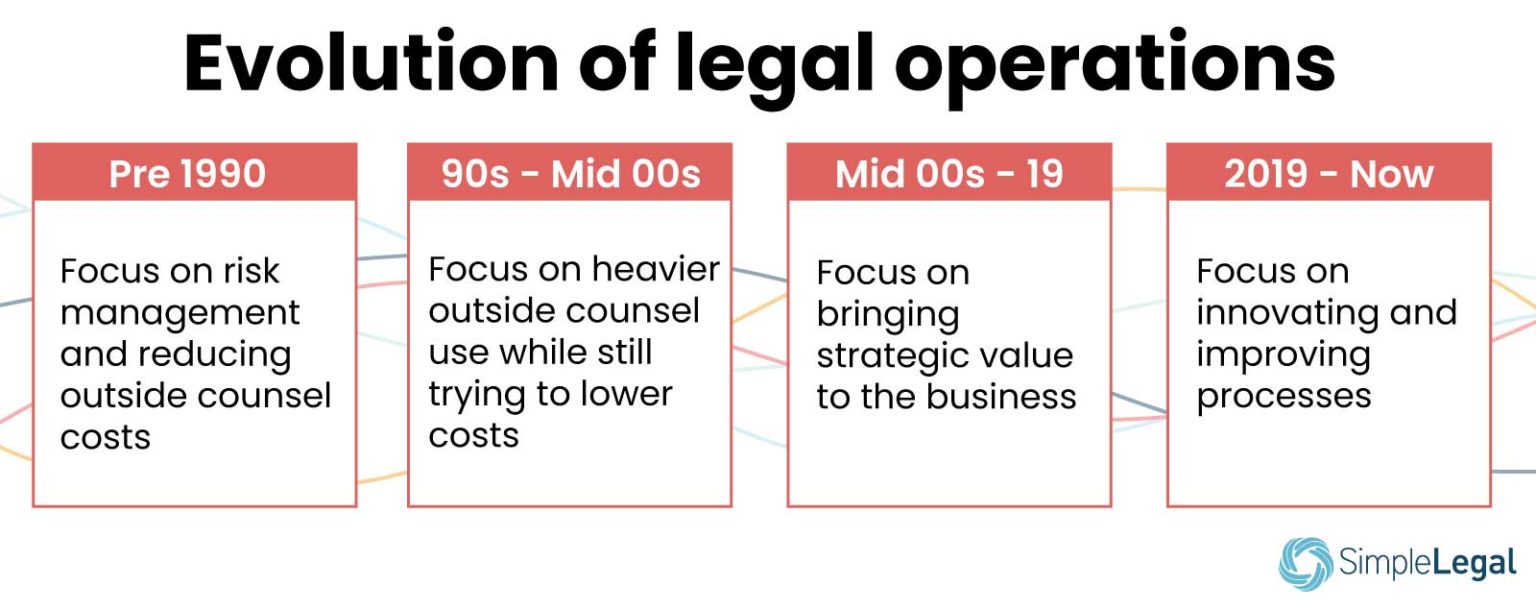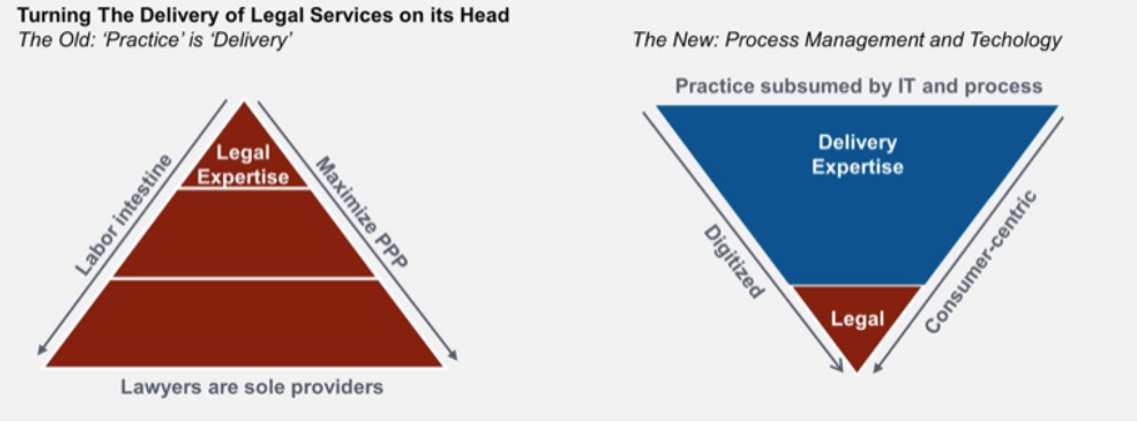How Legal Ops is Driving Digital Transformation in 2023
Nov 29th, 2022
What is legal ops—and how can it drive your firm’s digital transformation? Legal operations is about developing processes and practices to better manage your company’s legal department. Legal ops drives and is driven by digital transformation, particularly contract lifecycle management software. Focusing on legal ops enables an easier shift to contract automation, which in turn helps the digital transformation of all your legal operations.
Key Takeaways
- Legal operations (legal ops) uses technology, processes, and practices to effect more efficient and effective legal activities.
- The goal of legal ops has shifted over the years from a singular focus on reducing costs to today’s focus on improving and innovating legal processes
- Legal ops today is reliant on new technologies to automate tedious processes, thus driving a company’s digital transformation
What Is Legal Ops?
Legal operations, also known as legal ops, is a new way to focus on your company’s legal activities. Instead of a strict contract or legal risk focus, legal ops focuses on the process, people, and practices behind your firm’s legal activities to establish a more efficient and effective operation.
Legal ops applies modern business practices and technologies to automate contracts and other legal activities. It enables informed and effective strategic planning, project management, and financial management. Doing so eliminates much previously manual legal work and frees your staff to focus on providing high-value legal services and advice.
In most companies, the legal operations team is part of the larger legal department. The team is responsible for all the legal department operations, managing current operations and streaming future operations.
Depending on the company, the legal ops team may be in charge of the following functions:
- Contract management. Legal ops is often responsible for automating the contract lifecycle, minimizing errors, and reducing costs. This area is ripe for rejuvenation, as 94% of companies say they face challenges with their legal management systems—and 57% say inefficient contract processes delay revenue recognition.
- Information governance. Many legal ops teams are at least partly responsible for managing their company’s information lifecycle, from initial data creation or ingestion to final disposition. Securing this data and managing data-related risk is an increasingly important task.
- Data discovery. Locating and accessing key data is often difficult, especially when much data resides in separate data silos across departments and physical locations. Legal ops must often centralize all legal data, break down data silos, and improve the ability to search for and retrieve specific data.
As important as legal ops is to many companies, many more have a minimum legal operations presence. According to the ACC Chief Legal Officers Survey, almost half (46.2%) of chief legal officers say their companies employ no legal operations professionals. Another 24% employ just a single legal ops person. That leaves a lot of room for improvement.
SOURCE: Brittany Tran via YouTube
The Shifting Focus of Legal Ops

SOURCE: https://www.simplelegal.com/
The concept of legal operations has evolved over the past several decades. Before 1990, legal operations focused primarily on risk management to reduce the cost of outside counsel. During the 1990s and mid-2000s, legal ops shifted to a heavier dependence on outside counsel while focusing on minimizing costs. From the mid-2000s to 2020, legal ops focused on minimizing costs and identifying individual costs and the return on investment they delivered, with the goal of providing strategic value to the company.
Today, legal ops teams focus on legal and business practices to dramatically improve them. Innovation is the name of the game, in many cases using technology to automate formerly manual processes, improving productivity and further reducing costs.
According to the Corporate Legal Operations Consortium (CLOC), the top five areas of focus for today’s legal ops teams are:
- Process development and project management (92%)
- Data analytics (84%)
- Process and technical support (84%)
- Vendor management (84%)
- Financial management (81%)
How Today’s Legal Ops Drives Digital Transformation
In past eras, companies would approach legal challenges by throwing more lawyers at the problem. This brute force approach proved costly and inefficient, even if it was sometimes effective.
Today, legal ops uses technology to battle similar legal challenges. Using technology is more cost-effective and more efficient than the previous labor-intensive approach. Technology, typically in contract lifecycle management (CLM) software, automates many previously manual processes, reducing labor costs and freeing up valuable legal talent to contribute directly to the legal effort.
The old model was lawyer-centric, while the new model relies on legal knowledge, technology, and business process management to deliver superior results to the larger organization. Delivery expertise is now more important than pure legal expertise—and technology drives that delivery expertise.

SOURCE: https://www.legalbusinessworld.com/
By relying heavily on technology, legal ops is now a driving factor in a company’s digital transformation. Companies can no longer rely on an ever-expanding team of lawyers to address their legal issues. Instead, companies must embrace new technologies to have the same or greater impact, driving the adoption of those technologies and speeding the company’s overall digital transformation.
Legal ops teams use many different technologies to perform many different tasks, including:
- Financial solutions for budgeting, billing, reporting, and billing
- Operational solutions for managing operations, staffing, meetings, licensing, compliance, and more
- Analytical solutions for tracking key metrics, analyzing daily performance, and developing longer-term strategic plans
- Contract management solutions for automating and managing the legal contract process from inception to execution and beyond
Adopting the right technologies for each function is crucial for business success. Technological solutions are cost-effective and more immediately impactful than the old approach of throwing more bodies at any given problem.
While many companies have embraced legal technology more slowly than technological solutions in other parts of their operations, that is starting to change. As companies realize the benefits of digital transformation, that pushes the entire organization forward in its digital transformation. From software-based legal billing solutions to complete CLM automation packages, such as Contract Logix offers, legal departments are increasingly tech-savvy and reliant on technology to be productive and effective.
Accelerate Your Company’s Digital Transformation with Contract Logix
Legal professionals looking to automate their companies’ legal operations and accelerate the drive to digital transformation have a true partner in Contract Logix. Contract Logix’s legal contract management software helps legal teams automate the contract process and move toward digital transformation. Legal operations are easier with a contract management solution—and Contract Logix is the premier CLM solution.
Contact Contract Logix to learn how contract management can drive legal ops’ digital transformation.
Looking for more articles about Contract Management? Check out our previous article “The Complete Vendor Management Checklist“.
Accelerate Your Digital Transformation With Contract Logix
Download our Data Extraction Product Brief to learn how you can automate the hard work using artificial intelligence


